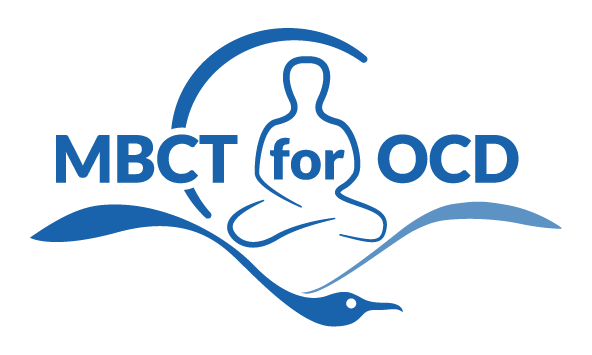Key features of the Mindfulness-Based Cognitive Therapy for Obsessive Compulsive Disorder Program
The Mindfulness-Based Cognitive Therapy for Obsessive Compulsive Disorder program is based on seven key or core components that support the rationale and are what make the program unique:
Understanding:
During each session, the group and instructor help participants to gradually develop a deeper and clearer understanding of how Obsessive Compulsive Disorder works (e.g. causing, activating and maintaining factors) and how mindfulness training can effectively intervene in replacing those mechanisms and attitudes with new healthy and adaptive modes, mental styles and states that are incompatible with obsessive-compulsive cognitive and emotional mechanisms and biases.
“Understanding is the first step to healing.” As participants come to realize that most of the “solutions” they have used over and over again to deal with their disturbing internal experience have become a disorder – the remedy to a problem has become the real problem – they are better able and more motivated to use and practice mindfulness-based teachings, principles and exercises, which can be considered antidotes to the above “solutions” and effective ways to work their way out of the obsessive tunnel.
Normalizing Obsessive Experience:
One of the most important aims and effects of both cognitive therapy and mindfulness based interventions is that they favor a process of normalization of the problems that people who have a psychological disorder suffer from. People with Obsessive Compulsive Disorder often come to the program with a hyper-pathologized vision of their problem and a sense that they will never get better. This situation can lead to the onset of a feeling of impotence, which then leads to a secondary problem of depression.
Through the process of normalization participants come to see that their reactions are not as unusual, strange or crazy as they had previously thought. When the behaviors, ideas and convictions that are considered normal for most people become extremely frequent and intense, one of the possible results is the development Obsessive Compulsive Disorder. Normalizing means helping a participant in the program understand that a person who had had their same life experiences and had used the same protective strategies or safety seeking behaviors that they had used up to that moment in their life would probably have developed an obsessive-compulsive problem as well.
One of the most useful strategies in treating Obsessive Compulsive Disorder is helping individuals develop an alternative, non-threatening explanation of their problem and an understanding that they are people who, for valid reasons, are sensitive to worries about a particular dangerous or harmful event. Further, they are people who react to those worries in ways that tend to actually increase rather than control the frequency of intrusive thoughts, their levels of distress and the urge to neutralise their thoughts (e.g., by controlling or washing excessively), all of which has a negative impact on their quality of life (Salkovskis, 1998; 2007; Veale, 2007).
Through the processes of decentering, disidentification, defusion, balance, acceptance and attention to the senses, mindfulness practice can be a powerful tool in the process of normalization because it allows participants to see reality for what it is and to understand how the mind distorts it in ways that lead them, in the end, to adopt useless and counterproductive strategies and behaviors.
Developing Trust and Self-Validation:
Mistrust can be considered a basic component in Obsessive Compulsive Disorder and the one that activates and maintains most obsessive symptoms. Helping participants to develop a real and mature sense of self-trust, in particular with regards to their memory and perceptual experience, and to self-validate their internal experience, especially their senses, can be one of the most powerful interventions in treating this kind of disorder. Trust is also an important factor in helping patients learn to be exposed to obsessive stimuli without engaging in counterproductive protective behaviors (e.g. compulsive rituals) and allowing participants to develop a sense of acceptance of their challenging and uncomfortable experience.
Cognitive Intervention:
As in Mindfulness-Based Cognitive Therapy for Depression, cognitive intervention is a core component in this program, and a number of exercises derived from cognitive therapy are proposed. These exercises are important because they show participants the links between thinking and feeling and help them learn to recognize the mode of mind they are in so that they can choose to shift from a conceptual, narrative or over-thinking mode to a more direct, sensory or experiential mode.
Unlike standard Cognitive Therapy, in Mindfulness-Based Cognitive Therapy for Obsessive Compulsive Disorder the aim is not to change the content of thoughts, but rather to help participants to change their relationship with their own thoughts, emotions, and physical sensations. Through this shift in perspective, they come to realize that thoughts, regardless of their contents, are just simple transient and harmless mental events that do not need to be changed, fixed, fought against or avoided, but just observed from a decentered and disidentified stance in order to see which of them can be useful for their goals and which ones cannot.
Moreover, through psychoeducation and cognitive exercises, Mindfulness-Based Cognitive Therapy for Obsessive Compulsive Disorder helps participants to better understand the patterns of the mind, dysfunctional beliefs and cognitive biases that activate and maintain the disorder, and to recognize moment by moment when these cognitive processes are active. When they become able to do this they can desengage from them, coming back to the here and now, through the breath or other centers of attention.
Intensive Training in Mindfulness and Self-Compassion:
Practicing mindfulness on a regular basis is indispensable in helping participants develop new mental habits, attitudes and states that can directly and indirectly help them to effectively deal with their obsessive mechanisms and biases, and the ability to prevent or suspend any judgment or meaning they normally ascribe to the trigger stimuli. They learn to observe thoughts, doubts, impulses, and urges without reacting to or interpreting them, accepting them for what they really are, i.e. harmless and impermanent events that will disappear if they simply do not do anything to feed them. Decentering and acceptance also help in developing a non-threatening and more realistic and balanced perception of internal experience.
Practicing self-compassion and self-forgiveness regularly is important for progressively neutralizing, or at least reducing, the pathological over-activation of self-blame, guilt, perfectionism and inflated sense of responsibility that is often present in individuals with Obsessive Compulsive Disorder. Through this process they learn to take a wholesome, realistic and full responsibility of their own lives. Mindfulness and compassion practice help patients develop a stable mental state that can prevent or deactivate the unnecessary or counterproductive activation of the self-protection system (i.e., in conditions of a danger that is not real) and foster a more stable activation of the soothing system (Gilbert, 2010; Gilbert and Tirch, 2009).
Mindful Exposure:
Mindfulness practice is in itself an effective direct and indirect form of exposure to internal and external experience (Didonna, 2009c) associated with an implicit ability to prevent any reaction to it. Thus, throughout the program participants are progressively trained to expose themselves to and stay in contact with what they normally avoid, fight or try to neutralize.
In order to enhance the effects of exposure and reduce the activation of negative emotions or reactions, a specific integration between mindfulness and ERP is provided in this program (see Mindful exposure, Session 7). Through this practice participants are helped to directly expose themselves to challenging stimuli in a mindful state, allowing them to see reality as it is, suspending any interpretation of or judgment toward intrusive thoughts or other trigger stimuli. They learn to use their senses as best as they can when they encounter a difficult external experience so that they can prevent any useless and counterproductive reactions to those stimuli (see safety seeking behaviors).
Sharing:
People who suffer from Obsessive Compulsive Disorder frequently either feel shame because of their problem or do not recognize their symptoms as pathological or disabling. Consequently, they often tend to hide their problem from other people, in many cases for several years and sometimes even from their families and close friends. In Mindfulness-Based Cognitive Therapy for Obsessive Compulsive Disorder groups, participants often find themselves for the first time ever in a situation in which they can share their problem with other people who suffer from the same disorder, and this alone can be therapeutic. Being part of an Mindfulness-Based Cognitive Therapy for Obsessive Compulsive Disorder group allows individuals to realize that they are not alone with this strange and incapacitating problem.
The group can provide support in difficult moments, different ways to think about things, understanding, and useful suggestions from those who have made the most improvements. Fellow group members can also provide one another with support and simply opportunities for sharing outside of the group sessions as well.





